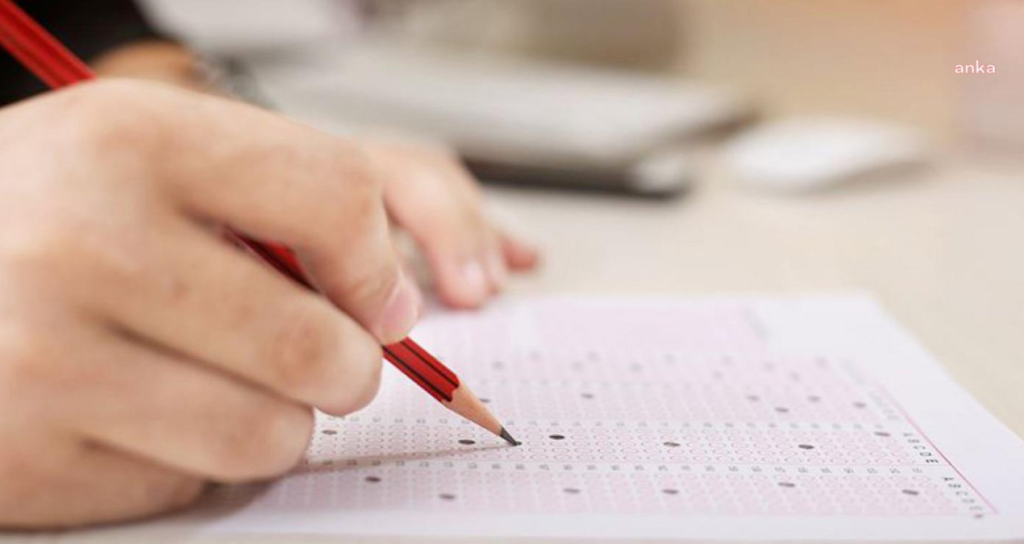In a significant educational event, the national exam for eighth graders commenced today, marking a vital step for over one million students in their academic journey. The exam, held at numerous centers across the country, aims to assess students before they transition to high school. Special accommodations were made for students with disabilities, ensuring inclusivity in this critical phase of their education.
| Article Subheadings |
|---|
| 1) Overview of the Exam Structure |
| 2) Examination Procedures and Schedules |
| 3) Special Provisions for Students with Disabilities |
| 4) Parental Involvement During the Exam |
| 5) Future Implications for Students |
Overview of the Exam Structure
This year, the examination, officially termed the LGS, is designed for approximately 1,010,916 eighth-grade students. It consists of two main sessions divided into various subjects. The first session features verbal questions, covering essential subjects such as Turkish, History, and foreign languages. Meanwhile, the second session focuses on mathematics and science, measuring students’ analytical and empirical skills.
Held at 973 examination centers nationwide, including 3,938 schools and 62,693 classrooms, the LGS aims to provide a uniform standard for academic assessment. The exam is also being administered in 13 schools abroad, which attests to its widespread recognition and importance among the student population.
Examination Procedures and Schedules
The first session of the LGS initiated at 09:30 AM, lasting until 10:45 AM, after which there is a 45-minute break. This intermission allows students to refresh before the second session commences promptly at 11:30 AM and concludes at 12:50 PM. During this break, students are encouraged to step outside and take a breather, which is vital for reducing exam anxiety.
In the verbal section, students are presented with 50 questions and are allotted 75 minutes to complete this part of the exam. Conversely, in the mathematics and science section, students face 40 problems within an 80-minute timeframe. The structure of the exam serves not only to assess students’ knowledge but also to enhance their time management skills.
Special Provisions for Students with Disabilities
This year’s LGS incorporated specific provisions to accommodate students with special needs. Notably, 105 visually impaired students registered for the examination. Provisions were made to ensure that they received the necessary assistance, such as braille materials or oral exam formats. These adaptations are designed to create an equitable testing environment, highlighting the educational system’s commitment to inclusivity.
Moreover, 199 students with unique medical circumstances were permitted to take the exam from home or in a hospital setting. This decision acknowledges the diverse challenges students may face and guarantees that all individuals have the opportunity to participate in the examination process.
Parental Involvement During the Exam
On the day of the exam, many parents demonstrated their support by accompanying their children to the examination centers. For instance, candidates at the Anıttepe Secondary School in Çankaya arrived early to ensure they could enter smoothly. Parents played a vital role in helping to calm nerves, and their presence outside the gates underscored the emotional significance of such academic milestones.
Officials at the school engaged with families, offering guidance and informational briefings about the exam protocol, including security checks. Observers noted that parental involvement was prevalent, with many waiting patiently outside, contributing to a supportive atmosphere.
Future Implications for Students
The outcome of the LGS has substantial implications for students as they transition to high school. Those who do not take the exam will be placed in local schools based on other criteria, which may limit their educational opportunities. Therefore, performing well on the LGS is often viewed as a challenge for students aspiring to enroll in prestigious secondary institutions.
As the educational landscape becomes increasingly competitive, the LGS serves as a pivotal element in determining students’ future paths. The anxiety surrounding the exam highlights its importance, leading to discussions among educators and parents about supporting students effectively in preparation for such assessments.
| No. | Key Points |
|---|---|
| 1 | The LGS exam consists of two sessions focusing on verbal and mathematical skills. |
| 2 | Over one million eighth graders across the nation participated in this year’s exam. |
| 3 | Special accommodations were provided for students with disabilities, including home testing options. |
| 4 | Parental involvement was notable, providing emotional support during the exam. |
| 5 | Performance on the LGS is crucial for determining high school placements for students. |
Summary
The LGS exam represents a critical juncture for eighth graders as they prepare for their high school education. With various measures taken to accommodate different learning needs and the evident support from parents, the examination aims to serve as a fair assessment of student capabilities. The results will ultimately contribute to shaping students’ academic futures, underscoring the importance of effective preparation and emotional support during this challenging time.
Frequently Asked Questions
Question: What is the purpose of the LGS exam?
The LGS exam is designed to assess the academic capabilities of eighth-grade students, determining their placement in secondary schools.
Question: How are special needs students accommodated during the exam?
Special needs students receive various accommodations, such as additional time and different formats of the exam, ensuring they can participate equitably.
Question: How does parent involvement impact students during the LGS?
Parental support is crucial as it provides emotional reassurance, helping students manage anxiety and perform to the best of their abilities during the exam.
